Sign up for The Envelope
Get exclusive awards season news, in-depth interviews and columnist Glenn Whipp’s must-read analysis straight to your inbox.
You may occasionally receive promotional content from the Los Angeles Times.
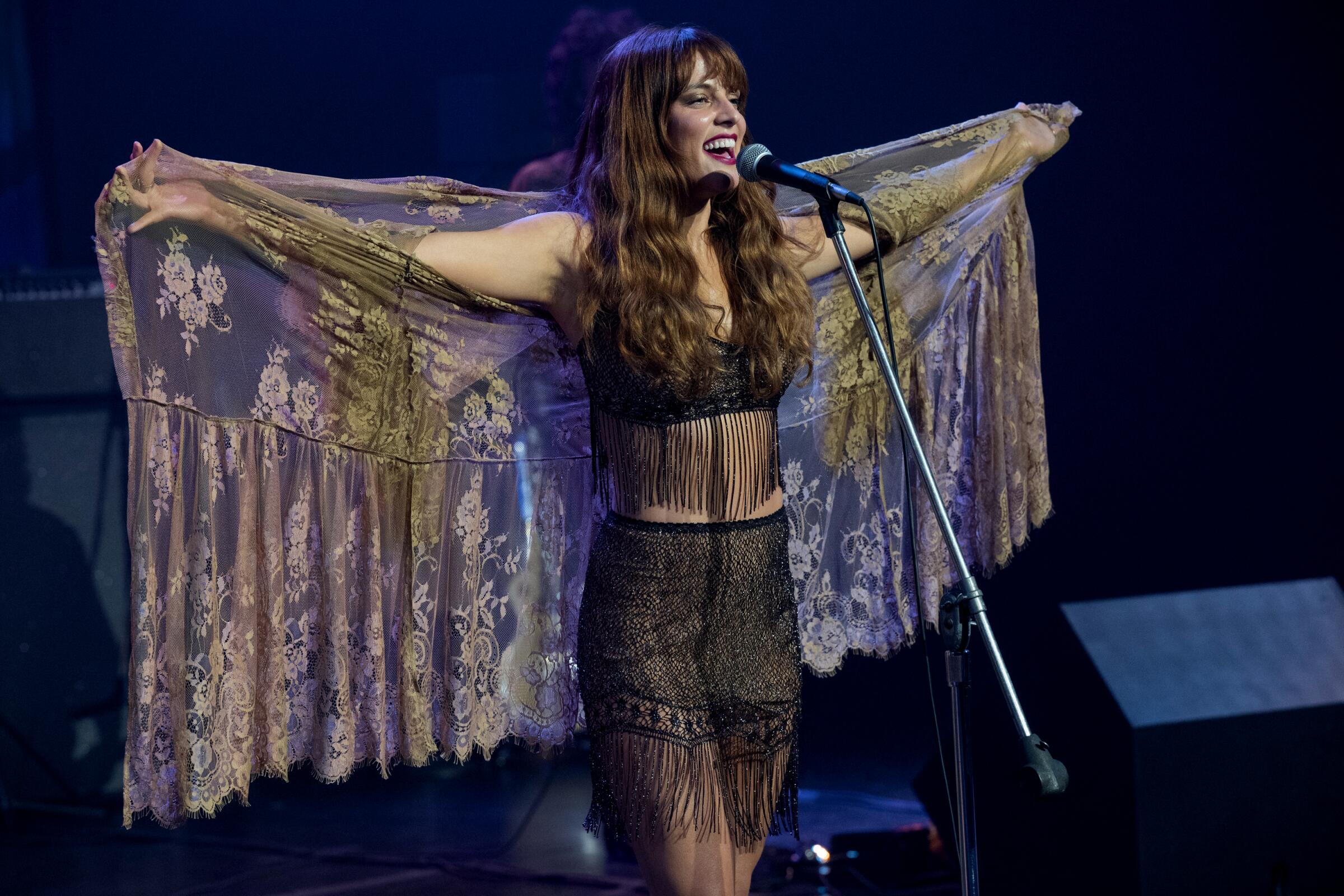
Nothing was going to stop costume designer Denise Wingate from finishing one of the biggest projects of her career, not a yearlong pandemic shutdown at the beginning, and not a broken ankle toward the end of filming the 10-episode fictional rock documentary “Daisy Jones & the Six.”
When production moved to Athens, she directed hundreds of background actors from a wheelchair, and later on in car-free Hydra, she had to use the Greek island’s traditional form of transportation while she was in a cast.
“I rode to set on a mule,” she says from her home in Los Angeles. Those trials have netted Wingate a career first, an Emmy nomination for period costumes in a limited series. Based on the 2019 bestselling novel by Taylor Jenkins Reid, the Prime Video miniseries follows a ‘70s rock band through its rise and fall, much like Fleetwood Mac.
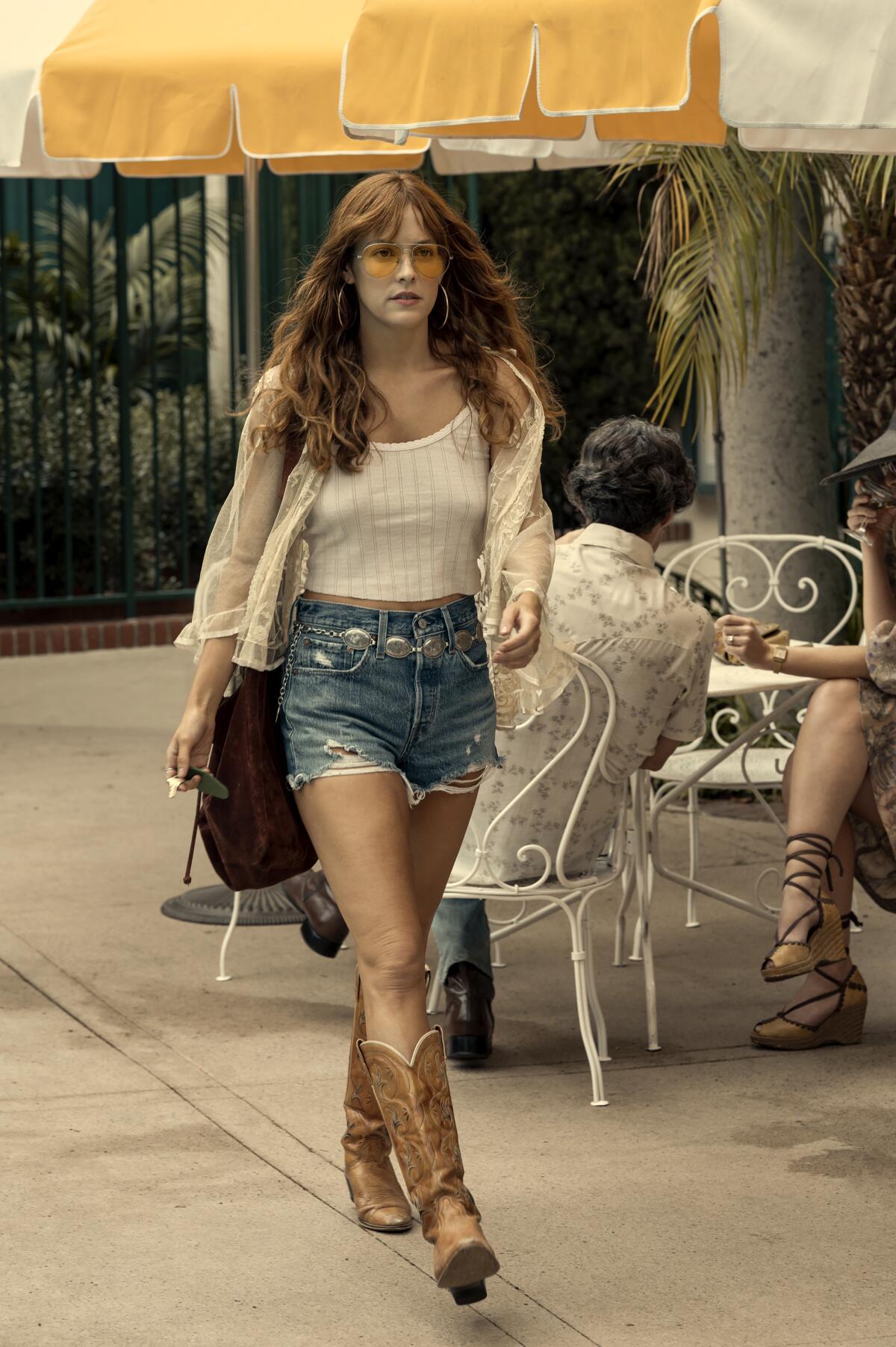
A fertile, exuberant era for fashion, the 1970s come alive in Wingate’s hands as she mixes glamour and grit. The costumes have turned stars Riley Keough as singer-songwriter Daisy Jones and Suki Waterhouse as keyboardist Karen Sirko into global fashion celebrities. The wardrobe also ignited a rock ’n’ roll menswear revival with Sam Claflin as Billy Dunne in denim and leather like Bruce Springsteen and Sebastian Chacon as shirtless drummer Warren Rojas in groovy vests.
For Wingate, the fashion wasn’t fantasy, but reality.
“I grew up in L.A. and I remember that era really well. I was a club kid with a fake ID, sneaking out to clubs when I was 13. I felt when I read the book that I knew the places, I knew what California was like back then,” she says.
In her early 20s, Wingate worked as the stylist for 1980s pop band the Bangles and spent 13 months touring with them.
“I felt very connected to the story,” she says of “Daisy Jones,” “so I really fought hard to get the job. The minute I finished the book, I started research.” She spent months creating a documentary-style presentation of visual references to wow producers and won the gig.
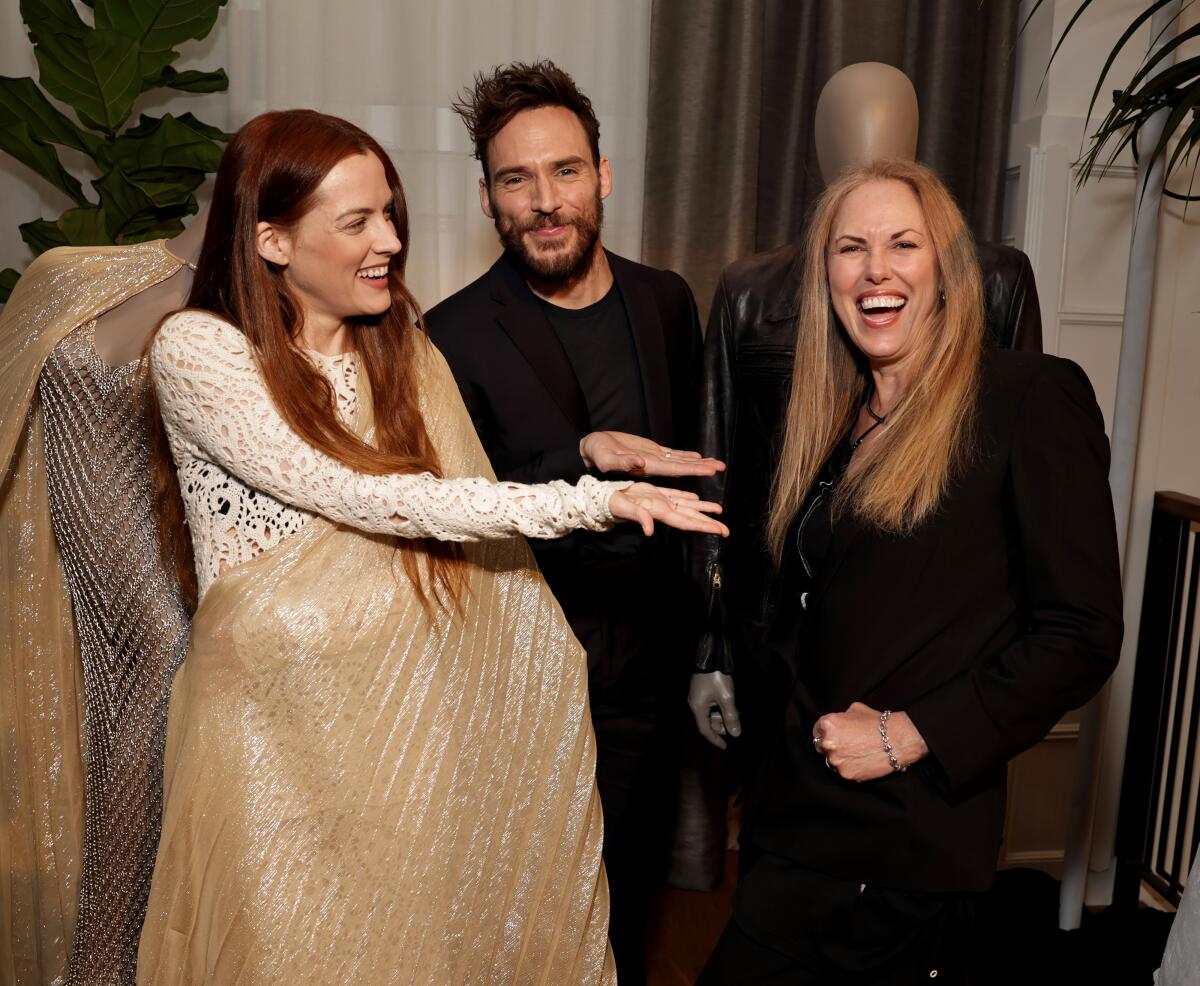
During the uncertain year of pandemic lockdown, she kept researching and scouring vintage stores online and in person worldwide.
“I went to flea markets every single weekend. I was using money out of my own pocket to buy stuff. I was all in,” she says. During production, she drove through a rainstorm to dig through a New Orleans vintage store owner’s garage storeroom.
From that deep well of research, Wingate was able to communicate a clear vision to her team and the actors across the complex project.
“This felt like a giant movie every episode,” Wingate says of the 10-episode series, which was shot in Los Angeles, New Orleans and Greece. The designer outfitted 10 main characters and the rest of the cast in nearly 1,500 costumes.
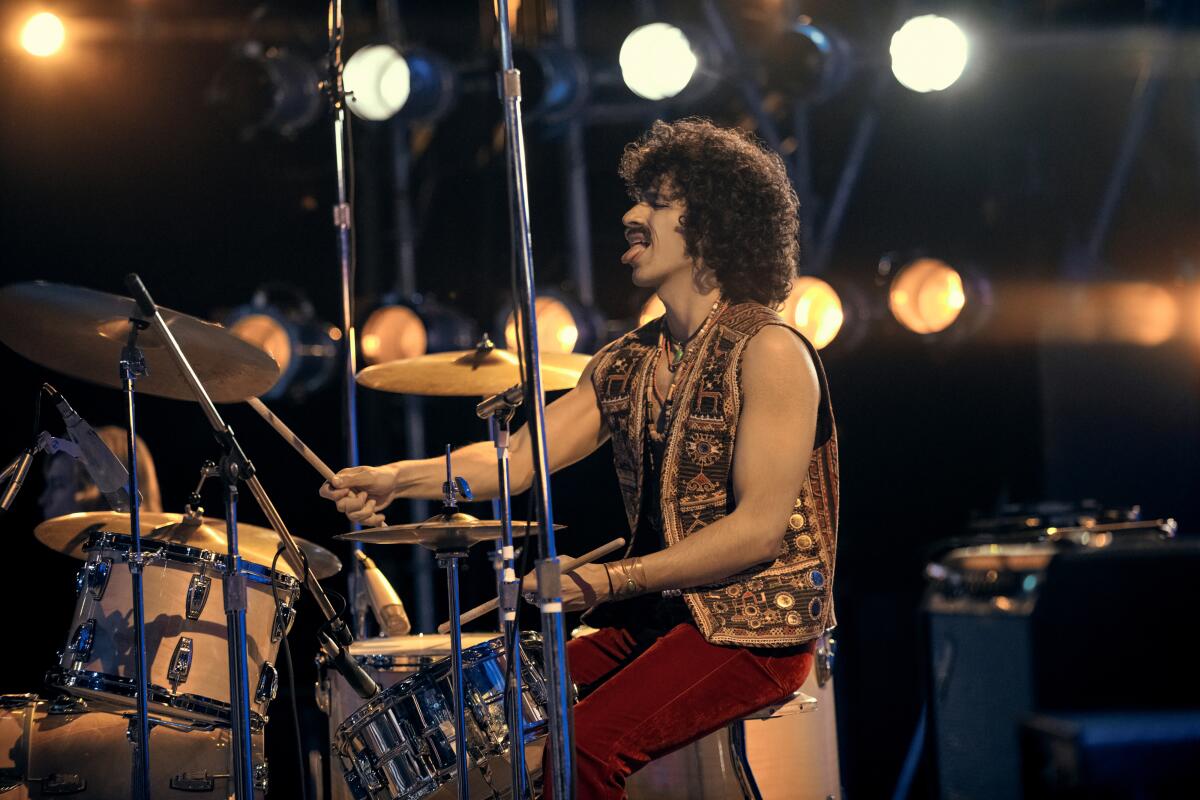
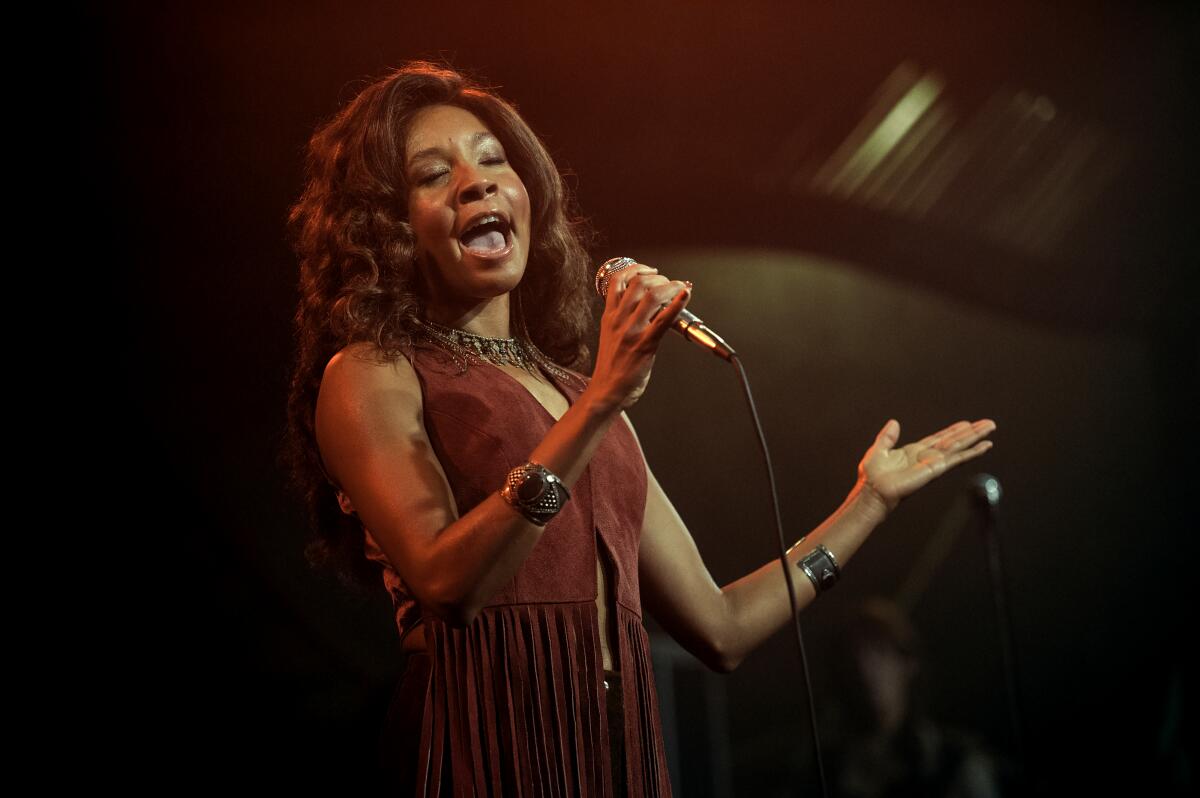
“On our very first day — very first — there were 56 costume changes,” Wingate says. “It took a lot of tracking and it could be really confusing.”
“I would do these paper dolls of all the costumes and I had giant boards with Velcro. [Key costumer] Sandra Collier taught me this trick and I would put all the dolls together for each scene so I could see what they looked like and move them around.”
A snapshot of those paper dolls — actually cut-out photos of the actors in costume — is on Wingate’s Instagram page, along with photos of items she re-created for the actors.
“I wanted it to look real,” says Wingate, who papered her office with images of every significant fashion or music icon of the era. There’s Quincy Jones and Berry Gordy who informed Tom Wright’s music executive character Teddy Price. Camila Morrone as wife/photographer Camila Dunne is a composite of Ali MacGraw, Bianca Jagger and other elegant ‘70s Bohemians. Waterhouse’s Karen pulled a tough glam look from Patti Smith, Suzi Quatro and the velvet suits of T. Rex frontman Marc Bolan.
With Wingate’s seamstress of 20 years, Rosa Medina, the costume team re-created such key pieces as a Navajo blanket coat for Daisy that Cher once wore. For Nabiyah Be’s disco queen Simone Jackson, Medina made a replica of the bead-and-feather-fringed top Chaka Khan once modeled. For Josh Whitehouse, who portrays bassist Eddie Roundtree, Wingate referenced Robbie Robertson of the Band, featured in the documentary “The Last Waltz.”
Keough weighed in with her own inspirations, notably after listening to Fleetwood Mac’s Stevie Nicks sing “Gold Dust Woman.” She wears a gold dress and golden vintage Halston cape in the finale as a result.
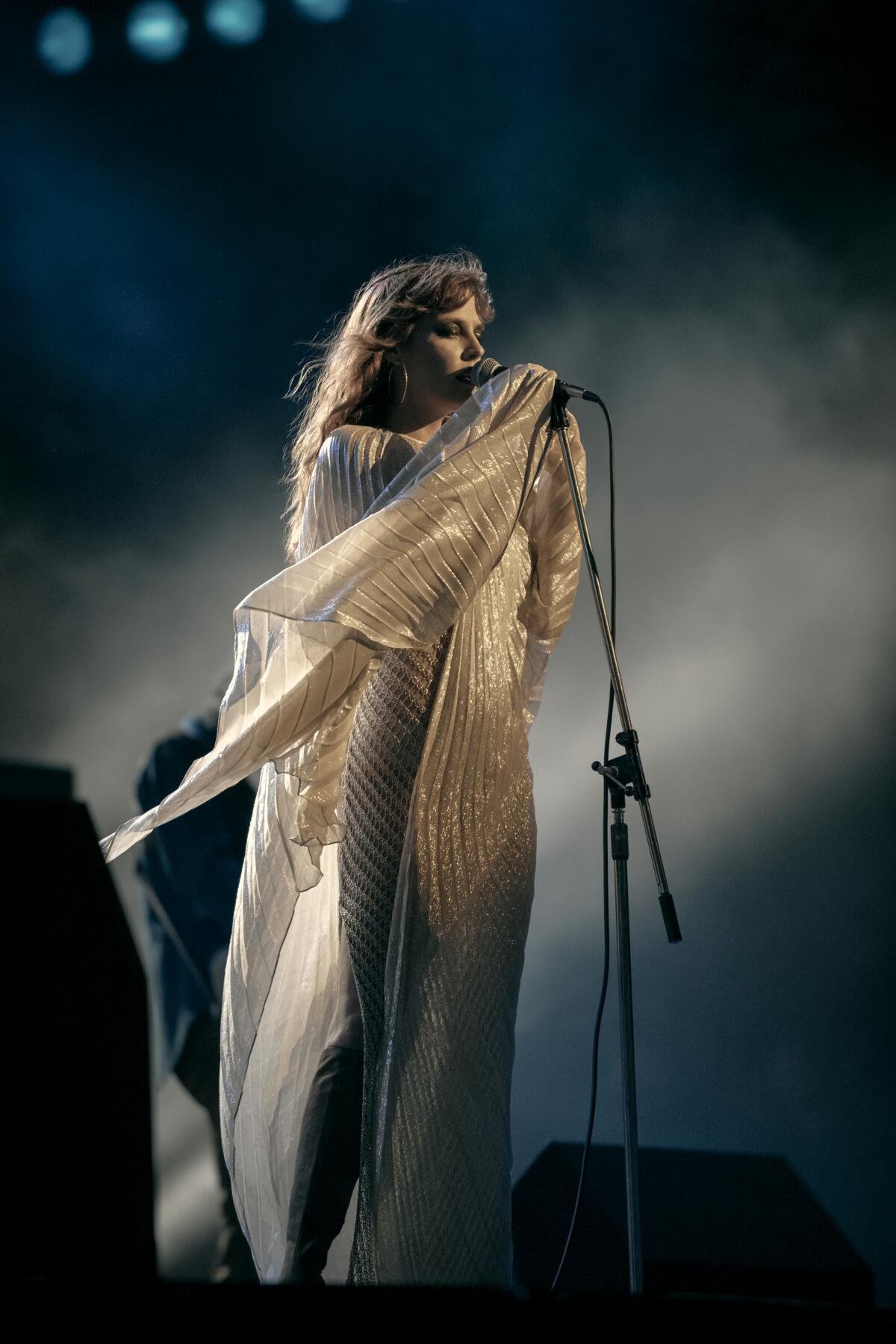
For Daisy, Wingate started with Nicks and her signature flowy capes and shawls, but merged with Linda Ronstadt’s cowboy boots and cut-off shorts. Toss in some Janis Joplin, Grace Slick and even Brigitte Bardot and Daisy becomes a character that is still causing ripples in fashion.
The show’s impact continues with dozens of “how to get the look” stories, resurgent interest in ‘70s style and fashion brand deals that illustrate the selling and trendsetting power of television and movies.
Collaborations abounded. Wingate worked with Levi Strauss to access its archive for vintage denim, which in turn led her to designer Melody Sabatasso, a.k.a. Love, Melody, who once made costumes for Elvis Presley (Keough’s grandfather) and also crafted coats for Daisy. Free People helped Wingate source costumes and separately developed a capsule collection based on the show.
Levi’s created a collection and campaign, including a denim halter top Wingate designed for Daisy, based on one Nicks wore. Amazon included the Levi’s and Free People collections in an online storefront curated to shop the look of the show.
The reaction to her work has been satisfying and instructive for Wingate.
“I just knew I had to do the best job I had ever done in my life. And it made me realize I love the research ... and period costumes,” she says. “I worked so hard. I say to anybody now that there is no job at this point in my career that I could not do after this. I am capable of anything. The gauntlet has been thrown.”
Sign up for The Envelope
Get exclusive awards season news, in-depth interviews and columnist Glenn Whipp’s must-read analysis straight to your inbox.
You may occasionally receive promotional content from the Los Angeles Times.